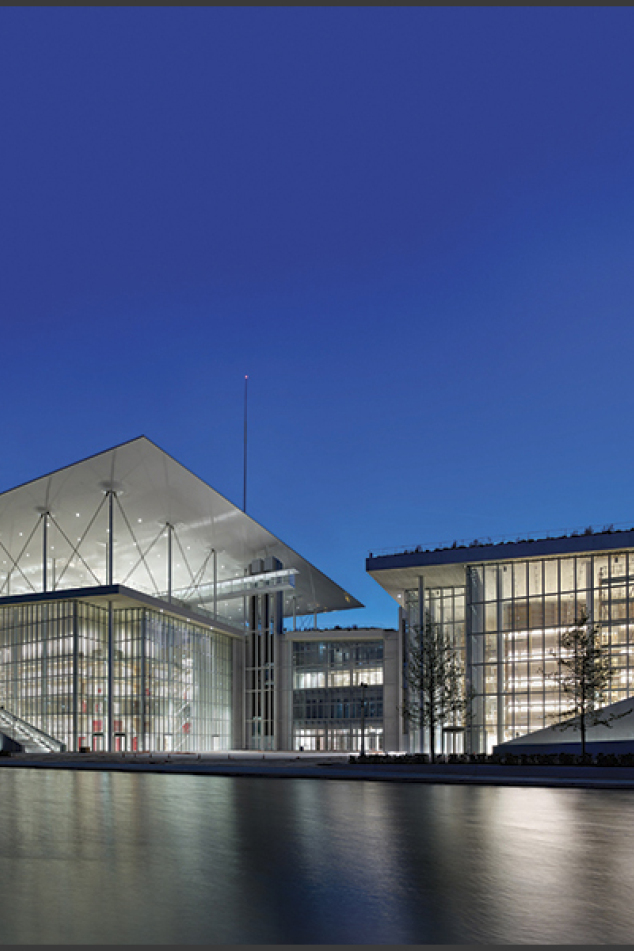
Baroque Music Festival: The Age of Experiments
THE MYSTERY SONATAS
Heinrich Ignaz Franz Biber
90
From to
Description
The highly successful Baroque Music Festival, a collaboration between the Greek National Opera and the Thessaloniki Concert Hall comes to your screens via GNO TV with four unique concerts that focus on the highly original and imaginative music of the 17th century. Iconic works by Heinrich Ignaz Franz Biber and Arcangelo Corelli, instrumental music of rare beauty from Galileo’s Italy and eclectic “mad songs” come to life through the versatile programme of the festival, titled The Age of Experiments, that was presented at the Greek National Opera Alternative Stage, at the SNFCC, on 24, 29, and 30 November and in the historic hall of the Parnassos Literary Society on 1 December 2024.This year’s Baroque Music Festival, curated by the prolific and highly active artist Dimos Goudaroulis and in collaboration with the Thessaloniki Concert Hall, presents some of the most important and interesting aspects of the fertile musical period of the 17th century.
The Festival’s programme traverses this century through four concerts, featuring leading European and Greek baroque musicians and highlighting early baroque music's open and restless spirit and experimental character. The programme includes pieces ranging from the outward-looking and daring Italian instrumental music of Galileo’s time to the unique and enigmatic Mystery Sonatas by Austrian composer Heinrich Ignaz Franz Biber, and from the unconventional “mad songs” that flourished in England in the second half of the 17th century to Arcangelo Corelli’s iconic opus 5, which was published on 1 January 1700 and marked the transition from the music of the 17th century to that of the 18th.
About the concert:
Austrian composer and virtuoso violinist Heinrich Ignaz Franz Biber’s famous and unique collection of fifteen sonatas for violin and basso continuo, known as The Mystery Sonatas or The Rosary Sonatas, was published exactly 350 years ago, in 1674. This collection represents and combines the intensely religious character and incredibly open and experimental spirit of 17th-century instrumental baroque music in the most plausible manner. Each of these fifteen sonatas symbolizes one of the fifteen sacred mysteries of the Roman Catholic Church, which are divided into three units – the joyful mysteries (the Annunciation, the Birth of Jesus, etc.), the painful mysteries (the Agony in the Garden, the Crucifixion etc.), and the glorious mysteries (the Resurrection, the Ascension of Jesus etc.). At the same time, each of these sonatas features a unique scordatura, a different tuning of the violin’s strings that expands the technical, expressive, and timbral possibilities of the instrument while pushing both the violin and its performer to their extremes. The three leading musicians in this concert perform together the world over as members of famous violinist Daniel Hope’s baroque ensemble.
The production “Baroque Music Festival” is part of the GNO Alternative Stage’s unit of programming titled “MUSIC THEATRE DAYS”, which falls under the ACT “FESTIVAL EVENTS OF THE GNO ALTERNATIVE STAGE 2024-2025” » (MIS 6002467) with code 2024ΕΠ08570049 (Priority: “Fostering regional social cohesion through the enhancement of mechanisms and infrastructure to support employment, education, health care and socioeconomic inclusion” of the programme “Attica 2021-2027) and is co-financed by the European Regional Development Fund (ERDF) and National Resources.
![]()
The funding body of the project is the Ministry of Culture, within the framework of the National Recovery and Resilience Plan "Greece 2.0" with funding from the European Union - NextGeneration EU.
Trailer
Creative team – Cast
Artistic curator: Dimos Goudaroulis
Lighting designer, projections: Alexandros Seitaridis
Baroque violin: Simos Papanas
Archlute: Emanuele Forni
Harpsichord: Markellos Chryssicos



































